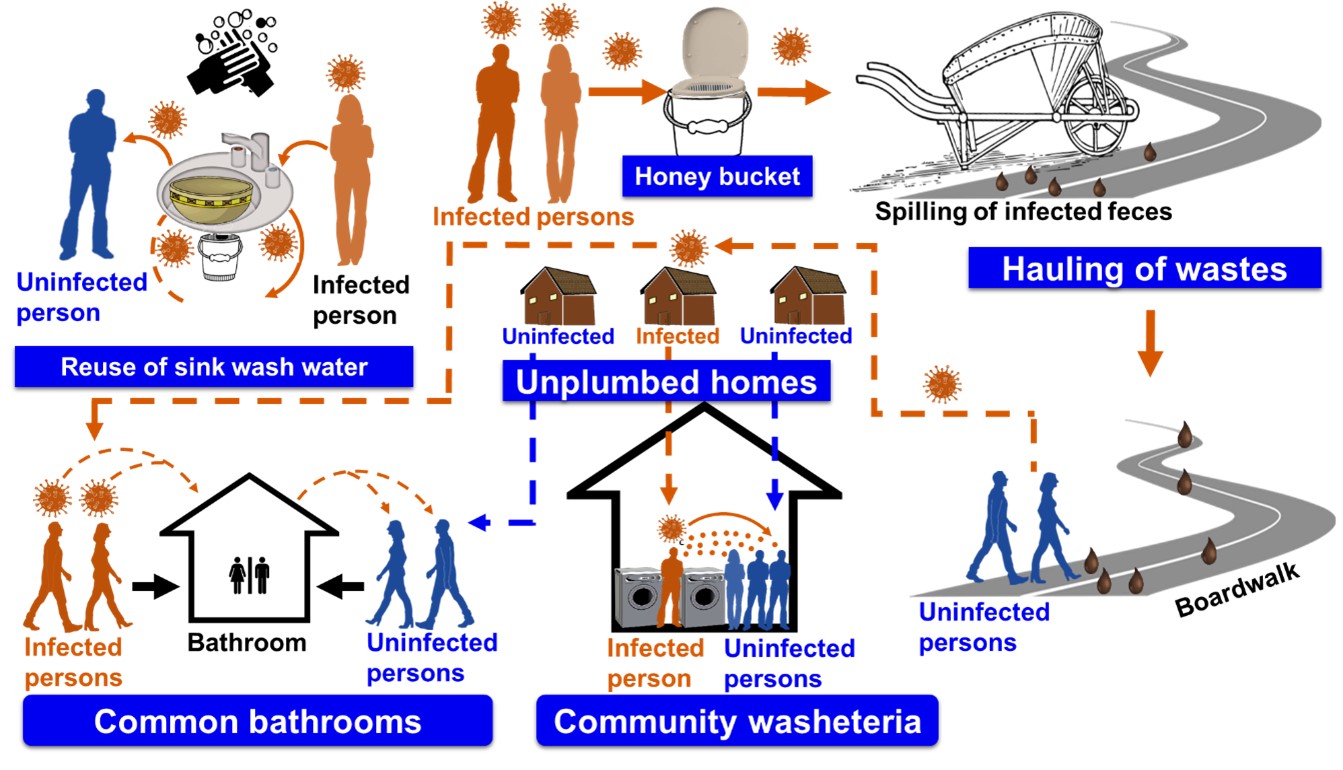The novel coronavirus SARS-CoV-2, the causative agent of COVID-19, emerged in the human population in December 2019 and spread worldwide within a few short months. Much of the public health focus for preventing and mitigating the spread of COVID-19 has been on individual and collective behaviors, such as social distancing, mask-wearing, and hygiene. Yet it is equally important to recognize that these behaviors and health outcomes occur within broader social and environmental contexts. Factors within local communities, regional policy, race, history, personal beliefs, and natural- and built environmental characteristics affect underlying population health and the spread of disease. For example, COVID-19 has renewed attention to secure water and sanitation services and their importance in protecting human health. Many remote Alaskan communities are particularly vulnerable because of inadequate water and sanitation systems. In this paper, we describe how inadequate water and sewer services may place the inhabitants of remote Alaskan communities at higher risk of COVID spread. We argue that insufficient water security and inadequate sewer systems, along with household overcrowding, multigenerational residences, limited transportation options, limited medical facilities, and higher prevalence of chronic diseases could lead to a greater potential of COVID-19 transmission and to more severe disease outcomes in these communities.

